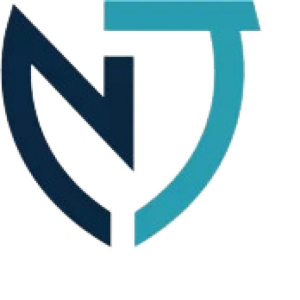When it comes to running a business or earning income, understanding the distinction between Personal Services Income (PSI) and Business Income is crucial. This differentiation impacts how your income is taxed and reported. Let’s look into what PSI and business income mean, their key differences, and how they apply to your circumstances.
What is Personal Services Income (PSI)?
Personal Services Income (PSI) is income earned primarily as a reward for an individual’s personal skills, knowledge, or efforts. It is common for sole traders, contractors, freelancers, and consultants whose work depends heavily on their expertise and performance.
Examples of PSI include:
- Income earned by a graphic designer for creating a logo.
- Fees charged by a lawyer for providing legal advice.
- Payments to an IT consultant for coding software.
In essence, if most of the income comes from your personal work or skills, it’s likely PSI. Contact your business accountant Melbourne who can confirm whether your income is PSI or not.
What is Business Income?
Business income, on the other hand, is generated through the operation of a business, which may include providing goods, services, or both. This type of income is where the profit isn’t tied solely to one person’s efforts but also to the systems, processes, and assets of the business.
Examples of business income include:
- Revenue from selling products in a retail store.
- Income generated by a landscaping company employing multiple workers.
- Profits from an e-commerce store selling digital or physical products.
Unlike PSI, business income is often derived from the combined effort of a team or leveraging assets and resources rather than individual skills alone. Your accountant Melbourne can advise if your income is business income or PSI.
Tax Implications of PSI and Business Income
- PSI Rules
In Australia, PSI is subject to specific tax rules. If your income is classified as PSI, the Australian Taxation Office (ATO) imposes certain restrictions:- The PSI must be attributed to the individual who performed the work, not to a company or trust. This means that the individual must declare the income in their own personal tax return (and potentially subject to a 47% tax rate) rather than through a company or trust (where the tax rate can be capped at 25% to 30%).
- Limits on allowable tax deductions (please contact your accountant Melbourne who can run though the limits on deductions)
- You may need to complete a Personal Services Business (PSB) test to confirm whether the PSI rules apply to you. Again, speak to your business accountant Melbourne who can run through the PSB rules with you.
2.Business Income Taxation
Business income is taxed under business tax rules. If you operate a company, partnership, or trust, income may be distributed among owners or shareholders. The tax rate on business income, if structured correctly, can be capped at 25% to 30%. Generally, there are no limits on deductions that can be claimed against business income. If the deduction relates to the business, then it is likely to be tax deductible (unlike if the income is PSI income). Again, contact your business accountant Melbourne, like Nobel Thomas, who can answer these questions for you..
How to Determine Your Income Type
If you’re unsure whether your income is PSI or business income, consider the following questions:
- Does most of your income depend on your personal effort and skills? (If yes, it’s likely PSI.)
- Do you employ staff, leverage assets, or generate revenue independent of your involvement? (If yes, it’s likely business income.)
You can also use the ATO’s Personal Services Income Tool to clarify your income type. Questions | Personal Services Income (PSI) decision tool
Conclusion
Understanding whether your income is classified as Personal Services Income (PSI) or Business Income is essential to determine the amount of tax that you will pay. PSI is tied to your personal expertise, while business income is generally the result of a team effort. PSI is likely to have a higher tax rate. Knowing the distinction can help you manage your tax liability more effectively and ensure compliance with tax laws.
If you’re still uncertain about your income classification or want tailored advice, consider consulting an accountant Melbourne. They can guide you in choosing the right structure and in meeting all your tax obligations.
Need Assistance?
At Nobel Thomas, we specialize in helping individuals and businesses navigate these difficult tax questions. Contact us today to get professional advice tailored to your unique situation.


